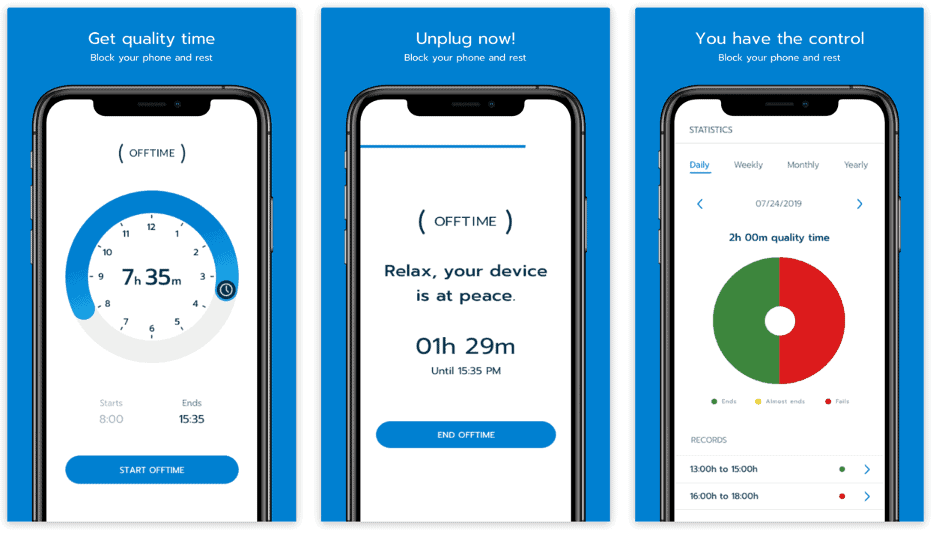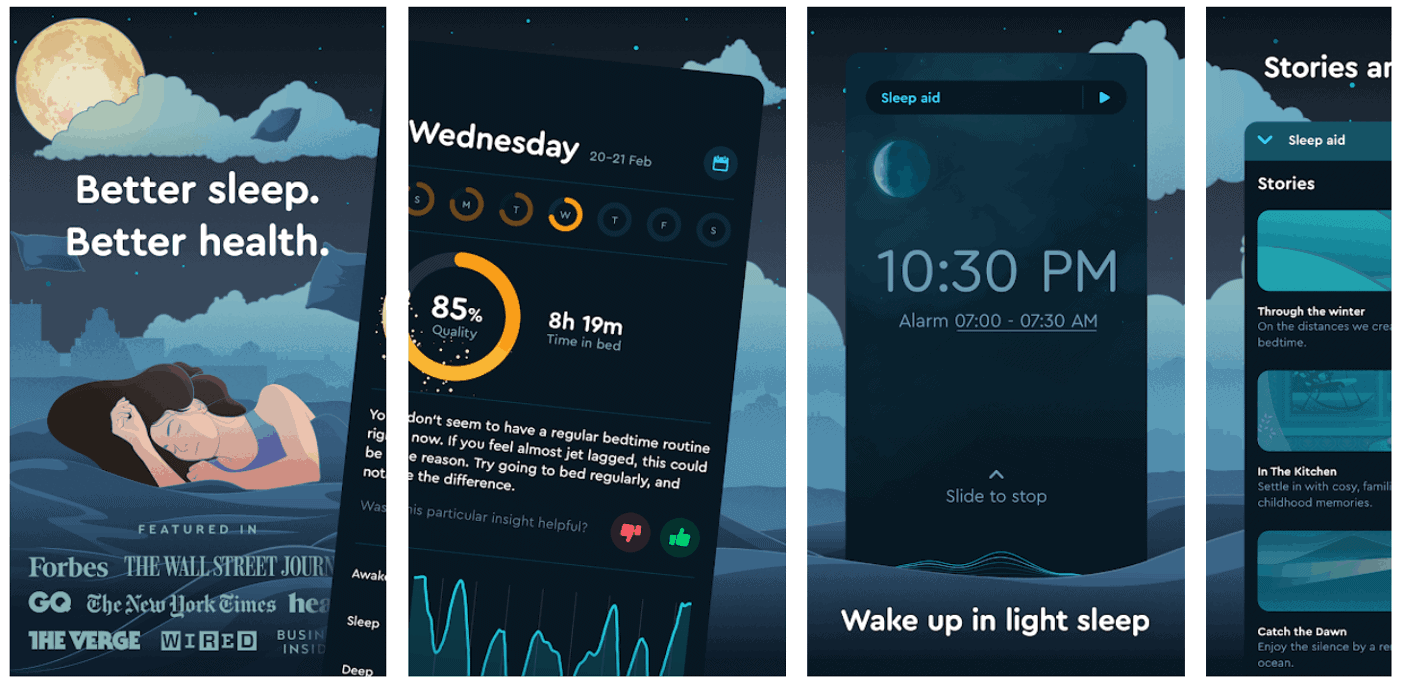10 school apps to help students study in 2021
Studying can be overwhelming, with pressure mounting for many students as exams edge
closer, day by day, week by week. But as a parent, how can you help support your child through
these challenging periods?
High school teachers report assigning students up to 3.5 hours of homework each night. Primary school teachers are setting less homework, but pupils aged 7-11 are still expected to spend half an hour, on average, completing homework each evening. After a long day at school, productivity and enthusiasm are waning, which isn’t surprising.
But we now live in a world where tech can make studying more efficient and effective. And there are many apps ready and waiting to enhance your child’s learning experience and improve stress management, from school communication apps to mindfulness, here are our top ten school apps for parents:
- SimpleMind
- Google Drive
- Otter
- Headspace
- Parentapps
- GoConqr
- Myhomework
- Google Translate
- OFFTIME
- Sleep Cycle
Any of these apps caught your attention? Read more about each app below.
1. SimpleMind
Mind mapping is a proven way to facilitate meaningful learning and improve memory, but sometimes mind mapping with paper, and coloured pens just doesn’t cut it — enter SimpleMind. SimpleMind is a free application that enables users to create colourful mind maps with ease, across multiple devices — pick from pre-built templates or build your own from scratch and unleash your creativity.
Mind mapping is great for problem-solving, knowledge-building, and crafting ideas, so if you think that this approach to learning would benefit your child, SimpleMind could be a fun new app to play around with.

2. Google Drive
Another free tool, Google Drive, is a cloud-based alternative to Microsoft Word, Powerpoint, and Excel (and more). You can access your documents from anywhere, including your smartphone or tablet, as long as you have internet access, the world is your oyster. Other great features of Google Drive include automatic saving, downloading documents as a Word or PDF format, and it’s excellent for classmate collaboration — simply invite users via their email address to add comments or suggestions to your work. When they respond, you’ll receive an email, so you never miss a comment. With cloud-based documents, you don’t end up with more than one amended document copy, and it’s really straightforward to use.
You can access other Google products through your Drive, including Google Meets for free video calls, Google Calendar, YouTube, and you can also store photos for easy access. The free Google account gives users 15 GB of free storage, so you won’t run out of document space for a long time.

3. Otter
Otter is a voice note-taking assistant and the best part? You get up to 40 minutes each day for free. Click the microphone button to active it and watch it take notes from anyone speaking on the screen or in-person. This is perfect if your child struggles to keep up with note-taking in class or while learning remotely.
The user can also use it to dictate homework assignments or take notes. Sometimes, speaking out loud can help make your thoughts clearer, and otter.ai is there to help you jot them down instantaneously. The application can also read your work back to you. Pretty handy, particularly for university students.

4. Headspace
It’s not hard to feel stressed when studying, that’s why it’s essential to take time away from the desk and laptop screen to de-stress. Another free tool, Headspace is a mindfulness and meditation app which aims to help improve stress, anxiety, sleep, and focus. In fact, a study found that Headspace improved focus by 14% and significantly decreased mind-wandering. Although taking breaks might seem counter-productive when studying, the truth is, taking study breaks helps regain focus and boost motivation.

5. Parentapps
Of course, we had to go ahead and put our app on this list! Our school communication app has many benefits, but one of our school app’s most recent features is the Homework Hub. The Homework Hub makes accessing homework tasks effortless for all involved — teacher, parent, and student. The teacher can upload the homework tasks and assign them to their pupils who can download the task and upload once completed. Apps for schools eradicate the need for paper-based homework tasks, and they’re easier for parents to keep track of all homework assigned.
The Hub is laid out with a user-friendly interface, so parents can easily navigate to homework tasks by subject. Parents can also live chat with teachers, making communication between parent and school as straightforward as possible.
Other features of our Homework Hub:

6. GoConqr
Improve learning ability with GoConqr. This app allows your child to create their own learning materials, build and share quizzes, create flashcards and slides and share them with classmates online. As GoConqr has its own online community, you can search for relevant resources on various topics from Shakespeare to Zoology; there’s always something interesting to read and learn about. This app could be a great option if your child learns through social interaction, or just wants to shake up their usual revision routine to learn through fun exercises.

7. Myhomework
Myhomework app is excellent for children of all ages, whether in high school, sixth form college or university. Students can use this app to plan and prioritise their upcoming assignments. The app can notify the user when assignments are due, so no deadlines are missed. Students can sync their tasks across all devices including tablet, smartphone, and desktop, so there’s ultimate visibility for upcoming tests and homework assignments.
Rated 4.4 on the Apple Store, students seem to love it, with one review stating: “Great app for tracking all of my online work during quarantine! Gives me reminders to finish and hand in assignments and extra details. Would 100% recommend!!!”
The app allows its users to add individual classes and assign various tasks to each class. Sometimes laying out what’s due when can help gain clarity and reduce anxiety.

8. Google Translate
If you’re a non-English speaking family struggling to communicate in English, Google Translate is here to help you. It can help you translate school communications and help support your child by understanding and completing homework tasks with relative ease. Simply paste words or phrases into the translator and select the language you wish to translate to. You can also upload entire documents to be translated. No one should have to miss out on learning, and now, you don’t have to.

9. OFFTIME
If your child is a chronic procrastinator, and always levitates to check social media, Whatsapp, play games — whatever they’re preoccupied with, then app-locking apps could be a great solution. We see the irony — an app that helps you stop using apps! But this free app allows the user to create ‘locked’ time on their phone. Either locking down specific apps or all apps, enabling the user to focus on the task at hand. An example from OFFTIME includes setting time to eat with the family and movie nights, but you could just lock all apps for study time. Giving yourself a small window of phone-less study time could help increase study productivity.
You can see from the screenshot below; the app tracks how much quality time you’ve managed to accumulate from not being on your phone. This display of progress gives a self-competitive element to the app. Your child could consider locking down their phone from evening until the morning, increasing their chances of a restful night’s sleep — instead, they could just ‘unlock’ the below sleep app.

10. Sleep Cycle
Without good sleep, your body can’t function properly. If you’re sleep-deprived, you won’t be able to concentrate as much as you would’ve if you had a restful night’s sleep. But crucially, for students, sleep helps learning and memory. There are many apps out there that encourage better sleep, and Sleep Cycle is one of them. Unlike other sleep apps, you don’t need to sleep with your phone under your pillow for this to work. Sleep Cycle wakes the user gently during their light sleep phase, making them feel less tired and ready for the day ahead. As the experts at Sleep Cycle state, “It’s not all about number of hours, but the regularity of sleep times.” Get your child into a healthy sleep routine and download Sleep Cycle for free on Google Play Store and Apple Store.

7. Myhomework
Myhomework app is excellent for children of all ages, whether in high school, sixth form college or university. Students can use this app to plan and prioritise their upcoming assignments. The app can notify the user when assignments are due, so no deadlines are missed. Students can sync their tasks across all devices including tablet, smartphone, and desktop, so there’s ultimate visibility for upcoming tests and homework assignments.
Rated 4.4 on the Apple Store, students seem to love it, with one review stating: “Great app for tracking all of my online work during quarantine! Gives me reminders to finish and hand in assignments and extra details. Would 100% recommend!!!”
The app allows its users to add individual classes and assign various tasks to each class. Sometimes laying out what’s due when can help gain clarity and reduce anxiety.

8. Google Translate
If you’re a non-English speaking family struggling to communicate in English, Google Translate is here to help you. It can help you translate school communications and help support your child by understanding and completing homework tasks with relative ease. Simply paste words or phrases into the translator and select the language you wish to translate to. You can also upload entire documents to be translated. No one should have to miss out on learning, and now, you don’t have to.

9. OFFTIME
If your child is a chronic procrastinator, and always levitates to check social media, Whatsapp, play games — whatever they’re preoccupied with, then app-locking apps could be a great solution. We see the irony — an app that helps you stop using apps! But this free app allows the user to create ‘locked’ time on their phone. Either locking down specific apps or all apps, enabling the user to focus on the task at hand. An example from OFFTIME includes setting time to eat with the family and movie nights, but you could just lock all apps for study time. Giving yourself a small window of phone-less study time could help increase study productivity.
You can see from the screenshot below; the app tracks how much quality time you’ve managed to accumulate from not being on your phone. This display of progress gives a self-competitive element to the app. Your child could consider locking down their phone from evening until the morning, increasing their chances of a restful night’s sleep — instead, they could just ‘unlock’ the below sleep app.

10. Sleep Cycle
Without good sleep, your body can’t function properly. If you’re sleep-deprived, you won’t be able to concentrate as much as you would’ve if you had a restful night’s sleep. But crucially, for students, sleep helps learning and memory. There are many apps out there that encourage better sleep, and Sleep Cycle is one of them. Unlike other sleep apps, you don’t need to sleep with your phone under your pillow for this to work. Sleep Cycle wakes the user gently during their light sleep phase, making them feel less tired and ready for the day ahead. As the experts at Sleep Cycle state, “It’s not all about number of hours, but the regularity of sleep times.” Get your child into a healthy sleep routine and download Sleep Cycle for free on Google Play Store and Apple Store.

